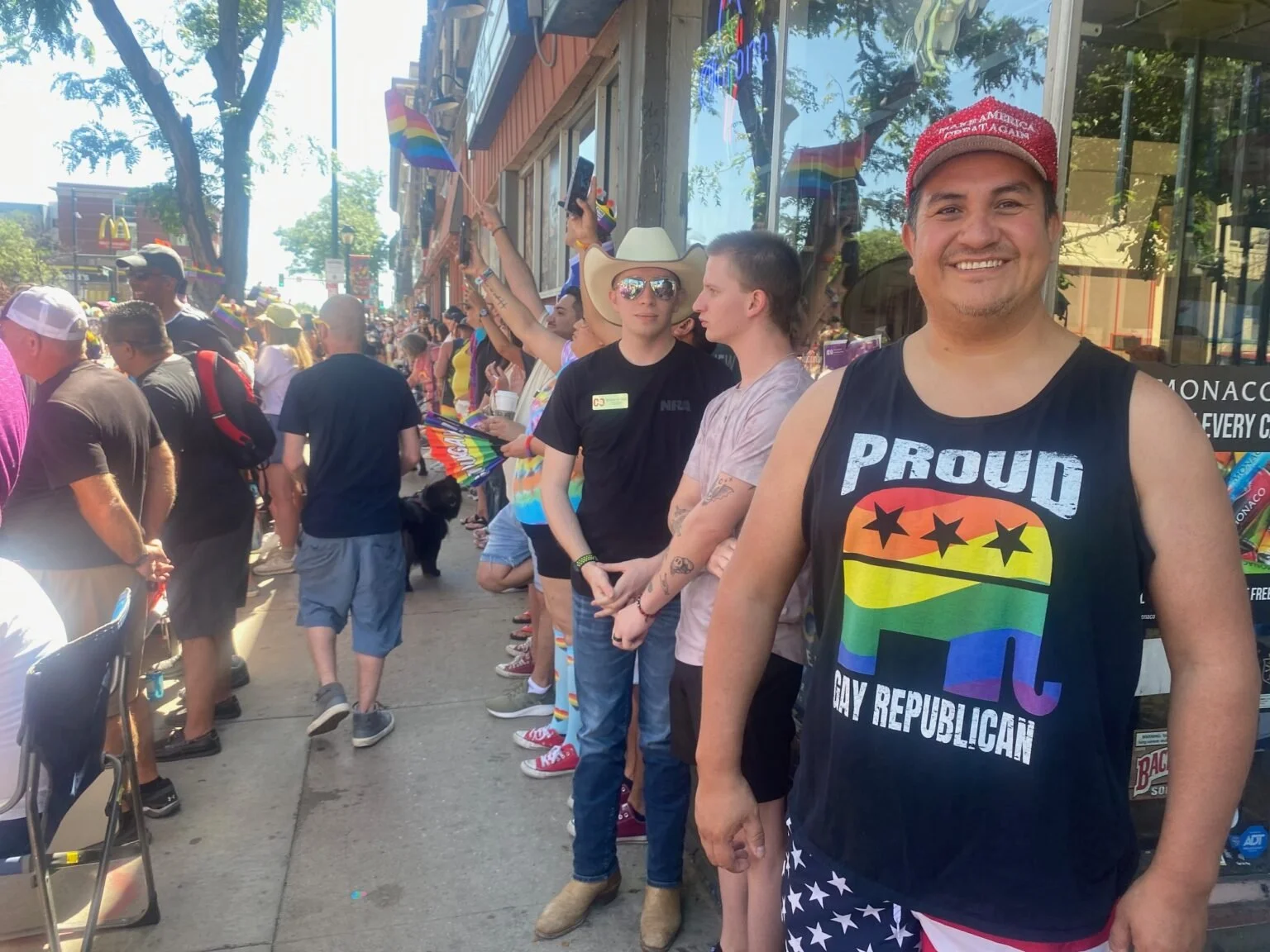When Allies Turn Judge: Why Democratic Journalists Calling Out Gay Republicans Can Undermine Gay Rights
In late 2025, liberal talking head Don Lemon made headlines again, this time for publicly threatening to “out” closeted Republicans at conservative gatherings like Turning Point. His logic, he said, was simple: if you vote to strip queer people of rights while hiding your own queerness, you’ve forfeited any claim to privacy.
On the surface, the impulse has moral clarity. But beneath it lies a dangerous paradox: the tactic of outing or shaming gay conservatives may do more harm than good to the cause of LGBTQ+ equality. Such strategies risk reinforcing stigma, bullying vulnerable people, and ultimately strengthening narratives that the Republican Party is somehow becoming more “gay”, which can be co-opted as a shield for anti-LGBTQ policy.
This article explores why call-out campaigns by left-leaning media can be counterproductive, examines the role of Log Cabin Republicans, traces Donald Trump’s shifting posture on gay marriage, and argues for more strategic, dignity-preserving tactics.
The Problem with Public Outing as Political Weapon
It mirrors coercive tactics, not progressive ones
True allies don’t shame people for their identities, especially when those identities are already stigmatized. When a journalist threatens to out gay Republicans, the dynamic becomes: “You must publicly prove your loyalty, or be exposed.” That mirrors the coercion LGBTQ+ people have historically faced — not the liberation we say we fight for.
It discourages people from political engagement or entry
Many gay Republicans (or conservatives generally) keep their identities private out of fear of backlash, family rejection, or professional ruin. Publicly threatening to out them can deter others from entering political life, reinforcing exclusion from spaces already hostile to queer voices.
It empowers the “gay Republicans as victims” narrative
When a gay Republican is publicly exposed or shamed, media coverage often frames them as a “closet hypocrite.” That narrative, ironically, can be turned into a political asset: “See, they’re queer too, how can you ban things that affect me?” The optics sometimes benefit the very party whose policies harm LGBTQ+ people.
It erodes trust in media and advocacy
Outing campaigns, especially by high-profile liberal journalists, risk alienating the LGBTQ+ community who view such tactics as bullying. It blurs the line between accountability and harassment, leading many to question the ethics of progressive media. Trust is easily lost; reputations are harder to restore.
Don Lemon’s recent remarks illustrate this dynamic: he has said he would “out” Republican men who quietly oppose LGBTQ+ rights. But critics warn that even if those individuals deserve scrutiny, the weaponization of outing often undermines broader solidarity.
Who Are the Log Cabin Republicans and Why Do They Matter?
To understand the stakes, we must examine the role of the Log Cabin Republicans (LCR), the most visible mainstream group representing LGBTQ+ members and allies within the GOP.
Origins & mission: Founded in 1977, the Log Cabin Republicans have long sought to educate the Republican Party about LGBT inclusion while promoting conservative principles among queer voters.
Tension with party platform: Over years, LCR has had to straddle a party that at times has passed anti-LGBTQ legislation, while trying to retain influence from within.
Alliance with Trump: In recent cycles, LCR chapters, at both national and local levels, have openly supported Donald Trump despite his uneven record on LGBTQ+ issues. For instance, the national organization endorsed Trump in 2020, and local NY chapters hold Pride dinners in Trump’s buildings. Tiffany Trump famously attempted to be a connecting voice for the LGBTQ+ in the Republican Party, an attempt quickly demonized by gays on the left.
Internal critiques: Many LGBTQ+ activists view LCR as complicit in enabling harmful policies. Despite being queer-led, LCR has continued support for Republican policies that cut transgender protections or roll back educational LGBTQ+ content.
Because LCR is the visible “face” of gay Republicans, public shaming or outing of its members becomes symbolic. It can be transformed into a rallying cry: “Look how far the party’s come — queer people inside support us.” That narrative undermines protest against anti-LGBTQ policy.
Trump, Marriage Equality, and the Evolution of Rhetoric
Part of what makes gay Republicans more publicly viable is that Republican voters and leaders have shifted (however unevenly) on LGBTQ+ rights, especially gay marriage.
Trump’s malleable stance:
During the 2016 campaign, Trump said he would “strongly consider” appointing Supreme Court justices who would undo Obergefell v. Hodges (same-sex marriage).
Later, as president, Trump largely avoided direct conflict over marriage equality, claiming he considered it “settled law.”
Trump has publicly called it an “honor” to be considered “the most pro-gay president” despite actions that rolled back transgender rights and paused bisexual, trans and queer references in some federal policies.
Meanwhile, public opinion among Republicans has shifted: as of 2024, the GOP platform removed language explicitly denying same-sex marriage, though it still opposes LGBTQ+ content or indoctrination in schools, supports limits on transgender athletes and attempts to protect female-only spaces.
In short the Republican Party is no longer uniformly hostile to gay marriage. That change gives a veneer of legitimacy to gay Republican voices, which in turn makes them harder to attack without appearing to undermine gay identity.
Because of this evolving political landscape, outing gay Republicans can seem not just cruel, but politically tone-deaf.
Why Call-Out Campaigns Often Do the Opposite of What They Intend
When you shame a gay Republican publicly, especially in the media, the consequences often include:
Reinforcing polarization: People retreat to their tribes. The Republican side will respond defensively, while moderate or unaffiliated watchers see the exchange as mean-spirited rather than illuminating.
Providing fodder for victim narratives: The targeted politician can claim harassment, hypocrisy, or cancel culture, shifting attention away from their policies.
Blocking internal reform: Those sympathetic to LGBTQ+ inclusion inside the Republican Party may be driven underground or silenced by fear of exposure.
Fueling backlash against queer advocacy: Critics on both ends point to aggressive tactics in LGBTQ+ media as evidence that queer activism is “overreaching” or intolerant of dissent.
Over time, these effects can strengthen the impression that the Republican Party is more “gay” now than ever and thus, critics of gay rights become more isolated while “gay Republican” voices gain outsized media prominence as smokescreens.
A Better Approach: Accountability Without Outing
If the goal is protecting queer rights and holding anti-LGBTQ+ politicians accountable, not showboating for clicks and views through public shaming, here’s a better framework:
Focus on votes and policy, not closet status
Demand transparency on how elected officials vote, not who they are in their private lives.Support and amplify queer Republicans who dissent
If a GOP lawmaker defends LGBTQ+ rights or breaks party line in defense of queer people, highlight them, not as trophies, but as agents of change.Use investigative reporting, not public spectacle
If there is credible evidence someone is voting against queer rights while privately living as queer, that may be journalistic fodder, but it must be handled ethically, not for spectacle.Bolster internal pressure and leverage
Rather than outing, push organizations like LCR, donors, and GOP insiders to condition support on pro-LGBTQ+ stances.Center queer voices and survivors
Let those directly harmed by anti-LGBTQ+ policy lead the narrative, not celebrities or journalists using gay identity as a cudgel.
Tim Malone, 40, and Don Lemon, 58, seen after getting married on April 6, 2024 in New York.
Dignity Trumps Drama
Don Lemon and others may see the tactic of calling out gay Republicans as a righteous tool, a pendulum swing from decades of forced silence. But in practice, it often reinforces the very divisions and narratives it claims to dismantle.
Gay rights grow strongest not through spectacle, but through strategic pressure, principled journalism, and alliances built on dignity, not shame. If democratic journalists want to oppose anti-LGBTQ+ policies, the better path is to call out ideas and votes, not closets and identities.





